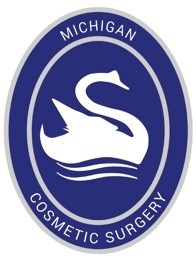Michigan Cosmetic Surgery Conducts Healthcare Blockchain Research with World Health Authorities
July 19, 2022 12:09 AM EDT | Source: Imperium Group
Southfield, Michigan--(Newsfile Corp. - July 19, 2022) - A Michigan cosmetic surgery practice has announced that it is working with world health authorities and FDA designated standards organizations to innovate the blockchain to make healthcare safer, starting with implantable medical devices. Michigan Cosmetic Surgery, led by Board Certified Plastic Surgeon Dr. Mariam Awada, is leading World Health Organization GS1 US Healthcare Initiative blockchain development for plastic surgery FDA-regulated medical devices, with a focus on breast implant use cases for global breast augmentation patients.

Michigan Cosmetic Surgery Logo
To view an enhanced version of this graphic, please visit:
https://images.newsfilecorp.com/files/8668/131237_c7202e28740318d8_001full.jpg
In alignment with the Federal Trade Commission and US Consumer Safety Blockchain Innovation Act, Michigan Cosmetic Surgery's blockchain development announcement comes at a time when multistakeholder collaborations have the potential to improve U.S. technology advancements and healthcare supply chain safety and value. Dr. Awada has been working with the leadership of the American Society of Aesthetic Plastic Surgeons and Women Plastic Surgeons to develop a GS1 US Healthcare Initiative standards-based blockchain. This prioritizes the safety and support for clinical research related to FDA regulated devices, such as breast implants used in breast reconstruction and breast augmentation and facial filler implants, and drugs that include Botulinum Toxin A.
In pursuit of its goals for the industry, Michigan Cosmetic Surgery has aligned itself with the Women Plastic Surgeons' leaders and the Global Women Plastic Surgeons aimed to improve global health and safety. The practice leads multistakeholder collaborations and discussions that aim to improve patient safety and healthcare value while laying the foundation for plastic surgery modernized artificial intelligence-based research.
As a WHO global standards blockchain member, Dr. Awada shares success stories and promotes blockchain implementation use cases that the practice hopes will improve the healthcare industry.
"The timing is essential, as we are at the crossroads of spending $2 trillion in healthcare yet falling short in value and safety rankings," Michigan Cosmetic Surgery says. "At least 15% of drugs consumed are fake because of limited ability to authenticate medical devices. As a provider, we stand strongly for blockchain-based patient support and automated processes to improve objective real-time data and capabilities. This is an opportunity for collaborations amongst multi-stakeholders to achieve operational excellence while empowering providers and patients alike."
Possible benefits may include cybersecure information and new channels for communicating FDA-regulated medical device outcomes as well as enabling real time objective demonstration of safety and effectiveness.
"This is actionable scientific-based information that has the potential to direct our next generation of personalized and safer healthcare while restoring value and providing new artificial intelligence to safeguard patients," the practice states.
Since 2012, Michigan Cosmetic Surgery has been a US and Global Standards Healthcare Initiative member and contributed to define and implement standards that resolve regulatory and authentication supply chain issues along with members from 110 countries.
"Prior to recent years, we did not have effective web 3.0 blockchain as a general purpose technology and foundational IT system for global multistakeholder communication," a Michigan Cosmetic Surgery spokesperson states.
Michigan Cosmetic Surgery has a team of doctors, nurses, and medical and business professionals alike identifying gaps in current processes and presenting blockchain-based solutions to help overcome patient, provider, and manufacturer communication limitations. Dr. Awada's team is an Allergan Platinum Practice that manages a high volume of breast implants used for breast augmentation, breast lifts, and reconstruction. "It is an honor to be supported by leadership and to be part of the Women Plastic Surgeons team to modernize healthcare with patient safety blockchain initiatives in Michigan, nationally, and globally."
Michigan Cosmetic Surgery will continue to educate and push for blockchain development and implementation at all levels of medical development through the American Medical Association, the American College of Surgeons, the American Society of Aesthetic Plastic Surgeons, the American Society of Plastic Surgeons, and the International Society of Aesthetic Plastic Surgeons. The practice's goal is to promote education and awareness of blockchain capabilities along with different use case benefits with priority for long-term medical device tracking.
"However, in the medical field, we are unable to track the path a breast implant takes from its creation to removal. The blockchain has the potential to resolve gaps in total product lifecycle management and monitor that supply chain. It is a platform that will give providers and patients alike the ability to communicate more effectively with each other. This could prevent shortcomings in manufacturing process that occurred in the Europe PIP crisis and impacted hundreds of thousands of women in Europe."
The practice adds that ultimately, it wants to resolve any issues that may be still limiting the healthcare industry's ability to perform long-term medical device tracking. "The blockchain is where the answer to this problem lies. We hope that by innovating this technology, we will be able to optimize the safety of patient support before, during, and after medical device placement whether an orthopedic, cardiac, or a breast implant."
Michigan Cosmetic Surgery was established by Dr. Mariam Awada in 2003 and has grown into one of the state's most recognized cosmetic surgery practices. As a patient safety advocate, Board-Certified Plastic Surgeon Dr. Awada has twenty years of experience in cosmetic surgery and is a surgical center accreditation expert. She also has multiple MIT certificates in the blockchain and business and has volunteered for the World Health Organization designated GS1 Global to create and implement global business standards which resolve critical supply chain issues.
For more information on Michigan Cosmetic Surgery, please see its website or contact:
Mariam Awada, MD FACS
248-948-5500
drawada@michigancosmeticsurgery.com
To view the source version of this press release, please visit https://www.newsfilecorp.com/release/131237
